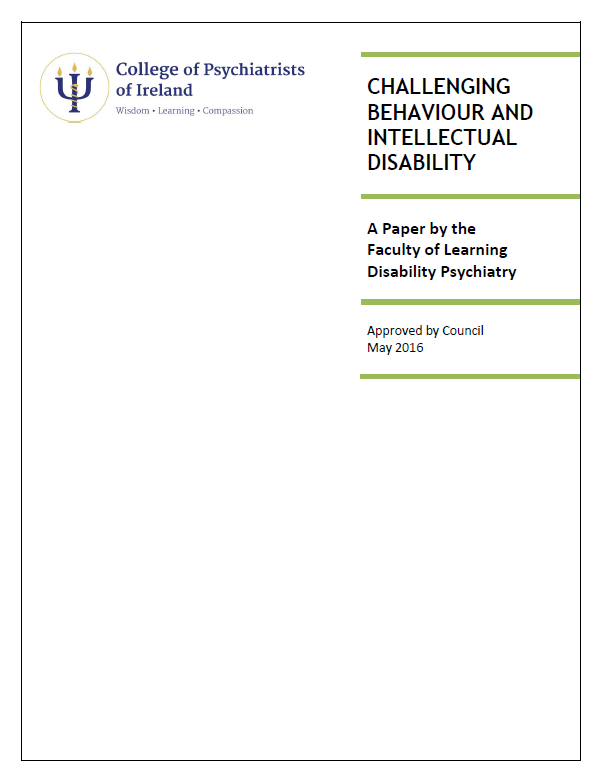This position paper is aimed at psychiatrists in Ireland working with people with an intellectual disability. The psychiatrists may be working within voluntary organisations, the HSE or MHID teams.
This paper will not aim to address issues such as access to services or service development as such. It is a practical paper in relation to the assessment and management of challenging behaviour generally.
Intellectual disability (ID) is defined by the following criteria: An IQ of less than 70, significant impairment of social or adaptive functioning, and onset in childhood.
Some people with ID may display challenging behaviour. This is not a diagnosis in itself but an indicator that such behaviour is a challenge to services, family members or Carers. It may serve a function for the person with ID (for example, by avoiding demands or communicating with other people).
This behaviour may include aggression, self-injury and disruptive behaviour. It may bring the person into contact with the criminal justice system.
People with ID who also have communication difficulties, autism, sensory impairments, and physical or mental health problems may be more likely to develop challenging behaviour.
Multiple factors are likely to underlie challenging behaviour. To identify these, thorough assessments of the person and their environment are needed. Interventions depend on the specific antecedents for each person and may need to be delivered through several avenues. The aim should always be to improve the person’s overall quality of life whom should be at the centre of all interventions.
It is important that the process of assessment should include:
- Eliminating physical health issues (e.g. seizure activity)
- Addressing psychosocial aspects (such as life events) with a particular focus on environment.
- Assessing mental health issues

